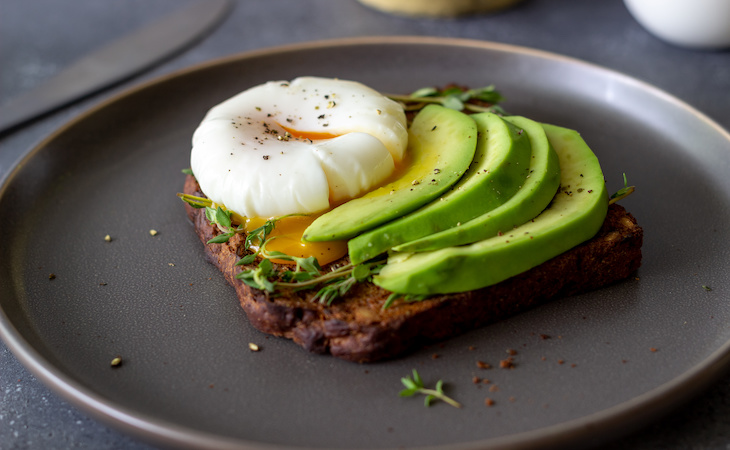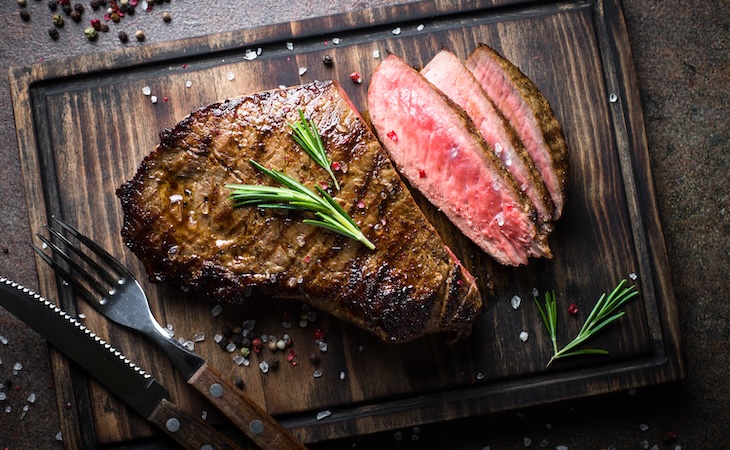With so many trendy diets out there, it can be hard to figure out which ones are really beneficial for your health. Intermittent fasting (aka “time-restricted eating”) is the latest diet darling, with proponents saying it does everything from helping you slim down to improving your sleep to boosting your overall well-being.
What is intermittent fasting?
“[Fasting] is simply going periods of time without eating or with minimal calories,” says Amy Goodson, RD, a Dallas-based registered dietitian. But there are actually two popular methods of practicing intermittent fasting.
The first is the 16:8 plan, where you eat during an eight-hour window and fast for 16 hours. Many people choose to start eating around noon and end around 8 p.m. with this plan. Then there’s the 5:2 plan, where you eat normally five days a week and consume no more than 500 calories on two nonconsecutive days.
As Michael Breus, PhD, a Los Angeles clinical psychologist, explains in a piece on his blog, when you fast, your digestive system goes quiet and your body uses this time to cleanse and repair itself on a cellular level. When you fast your body also uses stored fat for energy, which can result in weight loss. “Studies show restricting eating to 8- or 12-hour windows can help us maintain a healthy body weight and avoid high blood sugar, insulin resistance, and diabetes—regardless of the nutrient breakdown of the food we eat within those windows,” Breus says.
Related: Here’s what the keto diet does to your sleep
Intermittent fasting and sleep: What’s the connection?
Many people rave about their improved sleep while trying intermittent fasting. “I definitely noticed I slept better,” writes Larissa Zimberoff for the New York Times, in a piece titled “Intermittent Fasting Made My Life Easier, and Happier.” Adds Breus, “I have a number of patients who practice intermittent fasting and find it’s been helpful to their sleep as well as their waking performance.”
Why is that? According to Breus, intermittent fasting may strengthen your circadian clock. “A stronger, more synchronized circadian clock means an easier time falling asleep, staying asleep, and waking feeling refreshed on a regular basis,” Breus writes. “That combination of consistency and quality in a sleep routine is what we all want, to help us feel and function at our best, and to protect our health over time and with age.”
Breus also points to the fact that healthy sleep is easily compromised by overeating—and eating at the wrong time, such as right before you go to bed. A study published in the Journal of Sleep Medicine looked at the effects of dinner and late-night meals on sleep and found that eating 30 minutes to an hour before bed negatively impacted participants’ sleep quality. One such reason is that chowing down on large meals too close to bed can cause sleep-disrupting acid reflux. This is mitigated when you’re fasting.
Still, there’s not a ton of research out there looking specifically at the effects of intermittent fasting on sleep. One small study, published in the Annals of Nutrition and Metabolism, does exist, but the results were mixed. It found that while participants who fasted for a week didn’t experience much of an increase in REM sleep while practicing short-term fasting, they did experience a decrease in disruptive periodic leg movements during the night and woke up less during the middle of the night.
How to prevent intermittent fasting from ruining your sleep
If you don’t plan your meals right while doing intermittent fasting, you could go to bed hungry, which could, in turn, ruin your sleep. (Anyone who has eaten dinner too early and then spent the night counting sheep knows this all too well.) “From a nutrition standpoint, many people have trouble going to bed when they are hungry, so that may cause some to have issues falling asleep,” Goodson says.
You can combat that by eating dinner or a substantial meal as close to the end of your eating period as possible, according to Goodson. “Having adequate protein and fiber can also help because they both slow down digestion and will likely help you stay full longer,” she says. Try a shrimp-packed salad, a veggie-filled chickpea and quinoa bowl, or chicken and kale wraps for enough fiber and protein to keep you satiated.
It’s also important to note that some methods of intermittent fasting, like the 16:8 plan, allow you to drink water, black coffee, and non-caloric drinks during your fasting hours—which is a double-edged sword. “This can help people fight hunger as liquid can help with feelings of fullness, plus drinking adequately during the waking hours also helps meet hydration needs,” Goodson says. But drinking caffeine too close to bedtime can have worsen your sleep.
If you love java or caffeine-fueled tea, you’ll want to make sure you’re being careful about the timing of your beverages. “As far as caffeine, anyone sensitive to caffeine, intermittent fasting or not, should likely limit caffeine late in the day,” Goodson says. “Those fasting might experience a greater impact from the caffeine if they have not eaten in a while as they could possibly have low blood sugar and this could manifest the effects of caffeine for some.”
Stick to a cup of joe early in the day, and water or caffeine-free drinks later in the afternoon, to avoid spending the night staring at the ceiling. Just make sure to not drink too close to bedtime—otherwise, you may end up making frequent trips to the bathroom.
Certain foods can help you snooze. Here are the right foods to eat for better sleep.




